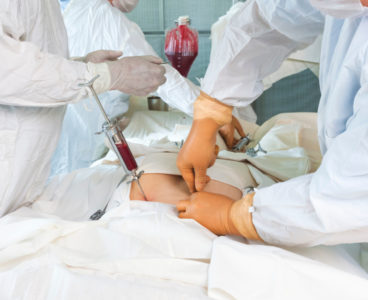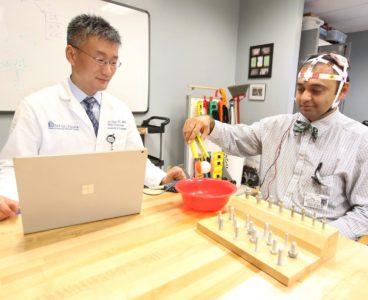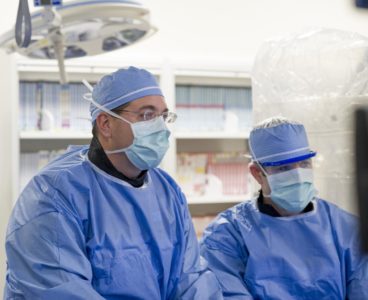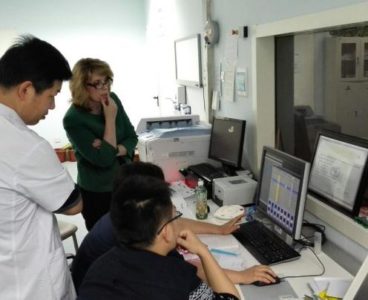
Uncovering a Mechanism Causing Chronic Graft-Vs-Host Disease After Bone Marrow Transplant
Detection of Transcranial Direct Current Stimulation Deep in the Living Human Brain
A defining characteristic of stroke is the loss of motor control due to structural damage in specific brain areas. In fact, motor impairments (or deficits) are the number one complication after stroke. Losing the ability to carry out basic bodily functions, such as speaking, walking and swallowing, can be devastating for stroke survivors. Unfortunately, there…
Portable Device Detects Severe Stroke in Seconds with 92 Percent Accuracy
A new device worn like a visor can detect emergent large-vessel occlusion in patients with suspected stroke with 92 percent accuracy, report clinical investigators at the Medical University of South Carolina (MUSC), Mount Sinai, the University of Tennessee Health Sciences Center and elsewhere in an article published online on March 6, 2018, in the Journal…
New Device Measures Blink Reflex Parameters to Quickly and Objectively Identify Concussion
The Centers for Disease Control and Prevention estimate that between 1.6 and 3.8 million concussions occur each year in the US. In addition, research indicates that nearly a quarter of annual traumatic brain injuries among children are sustained during high-contact/collision recreational activities or sports. Unfortunately, current methods for diagnosing and evaluating concussion severity are not…
3D Printed Model of Stenotic Intracranial Artery Enables Vessel-Wall MRI Standardization
A collaboration between stroke neurologists at the Medical University of South Carolina (MUSC) and bioengineers at the University of Massachusetts has led to the creation of a realistic, 3D-printed phantom of a stenotic intracranial artery that is being used to standardize protocols for high-resolution MRI, also known as vessel-wall MRI, at a network of U.S.…
Stem Cell Drug Screen Yields Potential Alternative to Statins
Scientists at the Medical University of South Carolina (MUSC) have found that a class of heart failure drugs might decrease low-density lipoprotein (LDL) cholesterol levels in patients who do not respond to statins. In a study appearing in the April 6, 2017 issue of Cell Stem Cell, cardiac glycosides reduced levels of a precursor of LDL…
Using a Rabbit Virus to Treat Multiple Myeloma
Treating multiple myeloma (MM) with myxoma virus (MYXV) eliminated a majority of malignant cells in preclinical studies, report investigators at the Medical University of South Carolina (MUSC) and elsewhere in an article published online on December 7, 2016 by Molecular Therapy — Oncolytics. Furthermore, introduction of MYXV elicited a strong immune response that eradicated disease in…








